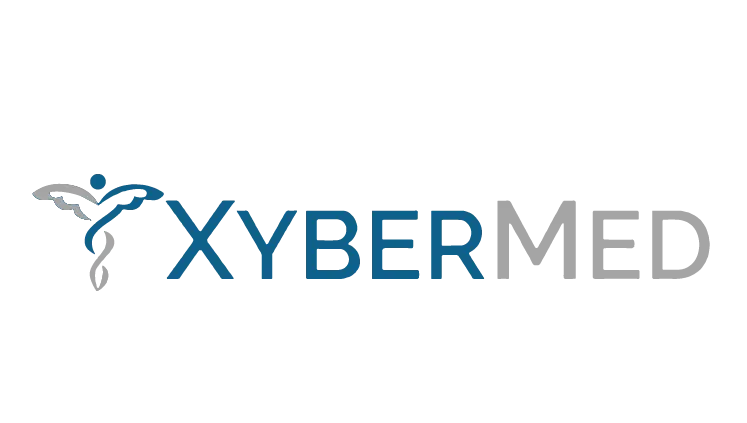Our Blog

Patient Financial Responsibility: Educating Patients About Their Medical Bills
In the modern healthcare landscape, the financial responsibility of patients is a critical aspect of medical billing processes. As now most insurance companies have started to shift towards higher deductibles, co-payment procedures and co-insurances, leading to patients being responsible for a greater portion of their medical bills than before. It is important for healthcare providers to educate their patients about medical financials and their responsibilities to ensure patient care with trust and transparency and ensure timely payments.
This blog will explore the importance of educating patients about their medical bills and provide strategies for helping them understand their financial responsibilities.
The Growing Importance of Patient Financial Responsibility
With the growing numbers of high deductible healthcare plans and frequent changes in insurance coverage, patients have now become significantly more accountable for the portion of their healthcare costs. Due to this shift in the health care process patients have been more burdened as they now must choose such a procedure that would put managing their medical bills at ease. Moreover, a lot of patients are not 100% aware of their financial medical responsibility which leads them to confusion, frustration and delay in payments.
It is a common misunderstanding, therefore, that the insurance company is liable for most of their medical costs. However, as modern insurance plans have become increasingly complicated, this is rarely the case anymore. In addition, medical billing terms such as copays, deductibles, and out-of-pocket maximums often confuse patients. Consequently, this confusion leads them to wonder why they are being charged for what they perceive as unnecessary services. As a result, such misunderstandings frequently lead to disagreements over bills, which can, furthermore, cause payment delays. Ultimately, patients may feel frustrated, especially as they consider themselves financially defaulted after receiving their bills.
Why Educating Patients is Essential
Educating patients about their medical bills is important for several reasons:
Avoiding Unexpected Bills: It's common for patients to feel surprised when they receive a bill that is higher than anticipated. By informing patients about their financial responsibilities ahead of time, healthcare providers can help minimize these surprises and promote transparency.
Promoting Timely Payments:When patients have a clear understanding of their financial obligations, they tend to make timely payments. Transparent communication regarding billing minimizes the chances of delays, which in turn supports the provider's cash flow and helps maintain the patient's financial stability.
Building Trust:Being open about financial matters helps build trust between patients and healthcare providers. When patients feel that their provider is straightforward and transparent about costs, they are more likely to maintain a good relationship with the practice or hospital.
Reducing Administrative Burdens:Helping patients understand their financial responsibilities can lessen the number of billing issues and inquiries providers must handle. This reduces the administrative burden on the billing department.
Strategies for Educating Patients About Their Medical Bills
Educating patients about their medical bills successfully requires taking a proactive approach. Below are some strategies healthcare providers can use to help patients better grasp their financial responsibilities:
Start the Conversation Early
A key strategy for educating patients about their financial responsibilities is to begin the discussion early. Talk about potential costs and insurance coverage during the first appointment or when scheduling procedures. Offering patients a clear estimate of expenses can help set expectations upfront. A cost estimate based on their insurance plan can help them prepare for their financial obligations before services are rendered.
Explain Insurance Terms Clearly
Many patients find it challenging to grasp insurance billing terms like "deductibles," "coinsurance," and "copayments." Breaking down these terms in plain, simple language can make the billing process easier to understand. For example, you can explain that a deductible is the amount a patient pays out-of-pocket before insurance coverage begins, while coinsurance refers to the percentage of the remaining cost, they are responsible for after meeting the deductible.
Provide Detailed Billing Statements
Once services have been provided, it’s essential to offer patients detailed billing statements that clearly outline the charges. These statements should break down the costs of services, the amount covered by insurance, and the remaining balance for which the patient is responsible. Avoid using complex jargon and ensure the statement is easy to read and understand.
Offer Flexible Payment Options
A lot of patients struggle with the costs associated with healthcare services. By offering flexible payment options like installment plans, providers can help patients handle their medical expenses more easily. When patients realize they have different ways to pay, they’re more likely to stay on top of their bills, which can help prevent overdue payments.
Use Digital Tools to Increase Transparency
In the current digital era, many patients like to handle their financial matters online. Providing online billing portals enables patients to view their statements, make payments, and ask questions, enhancing both transparency and convenience. Additionally, digital tools that help patients estimate their out-of-pocket expenses before receiving services can be extremely helpful.
Provide Educational Materials
Healthcare providers can offer various educational resources. These resources can include brochures, videos, and online materials. They assist patients in understanding their financial responsibilities. The materials should cover important topics related to insurance billing. Additionally, they can guide patients on how to interpret their billing statements. Furthermore, they should provide information on what steps to take if patients have questions about their bills.
Train Your Staff
It’s essential that front-office and billing staff are knowledgeable and comfortable discussing financial matters with patients. Moreover, training staff to clearly explain insurance coverage, billing processes, and payment options not only ensures that patients receive accurate and helpful information, but also builds their confidence in managing financial responsibilities. Additionally, this training contributes to a more positive patient experience, as it addresses concerns proactively and reduces confusion. Ultimately, well-trained staff can significantly improve communication and foster trust between patients and the healthcare provider.
Conclusion
At Xybermed, we recognize that as patients take on more financial responsibility for their healthcare costs, it becomes increasingly important to educate them about their financial obligations. By ensuring clear communication from the very beginning, simplifying insurance terminology, and offering flexible payment plans, we can help patients navigate the complexities of medical billing. This proactive approach not only leads to better financial outcomes for both patients and providers but also fosters trust and transparency, ultimately enhancing the overall patient experience.

Outsource medical billing service to XyberMed. Boost your practice with affordable, expert billing! Get started today and see the results.
Address:
755 Waverly Ave, Suite 100A Holtsville, NY 11742-1125 USA
